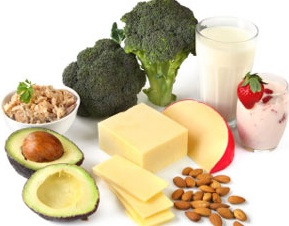 Osteoporosis is a condition characterized by progressive loss and deterioration of bone tissue leaving your bones susceptible to fractures.
Osteoporosis is a condition characterized by progressive loss and deterioration of bone tissue leaving your bones susceptible to fractures.
Osteoporosis is inevitable with aging, but there are number of risk factors that influence the loss of bone in the middle and later life.
Women are at greater risk of bone loss than men because women have less dense bones than men.
The other main risk factors of osteoporosis include poor diet, lack of exercise and poor lifestyle habits. Here are the osteoporosis prevention tips to delay or avoid osteoporosis later in life.
Osteoporosis prevention tips:
Osteoporosis exercise tips:
Regular exercise from your teen years will help in reducing your osteoporosis risk in the middle and beyond. If you are not performing physical activity regularly, the following osteoporosis exercise tips can help you to workout regularly.
- Choose workouts that include resistance and weight-bearing exercises as these exercises help in reducing osteoporosis risk.
- Resistance exercises use your strength of muscle to build bone mass and these exercises include push ups, chin ups, free weights, sit ups and elastic band exercises.
- Weight-bearing exercises use your bone and muscle to work against gravity and these exercises include stair climbing, bowling, dancing, walking, skating and jogging. Each time you hit the ground with your foot, stress is applied to your bones and therefore the strength of the bones is increased, which can be measured in terms of bone mineral density.
- Balance exercises can improve your stability and help in preventing falls, which cause fractures. The balancing exercises include sitting on exercise ball, standing on one leg, and tai chi.
- Flexibility exercises helps to attain flexible joints and prevent injury. Flexible exercises include stretching exercises and yoga.
- Select the exercises that are specifically targeted to strengthen your back to prevent fractures later on in life and to improve posture.
- Before starting any exercise program or before increasing the intensity of exercise, talk to your doctor.
- If you already have bone loss, avoid high impact exercises, as they can lead to fractures in weakened bones. Choose gentle weight bearing exercises like dancing, walking and low-impact aerobics.
Osteoporosis diet tips:
 Adequate calcium and vitamin D are required for building strong bones and teeth.
Adequate calcium and vitamin D are required for building strong bones and teeth.
Osteoporosis is a disease where calcium is lost from bones, resulting in weak bones.
Osteoporosis diet is important for osteoporosis treatment which includes adequate calcium intake.
Everyday your body loses calcium through shed skin, hair, nails, and sweat.
This lost calcium must be replaced through diet regularly.
When your diet does not contain enough calcium to perform these activities, calcium is taken from your bones, the storage area of calcium.
- People who have consumed more fruits and vegetables during childhood have high bone mineral density than those who consumed less.
- Vitamin D is important for bone health. Get vitamin D from daily sunshine or from intake of foods that contain vitamin D to prevent vitamin D deficiency. Vitamin D helps in absorbing phosphorus and calcium, which helps in regulating normal calcification of bones. Vitamin D is found in milk, eggs, liver and salmon.
- Leafy green vegetables are good sources of calcium and they also contain necessary vitamins and minerals that help in absorption and utilization of calcium. These leafy vegetables are kale, collard leaves, dandelion greens and turnip greens.
- To increase calcium in your diet, make stock for soup from bones and calcium rich vegetables. Stock that is made from animal bones and seafood shells is an important source of calcium.
- Drink your milk, which include low-fat and skim milk. Non-fat yogurt and reduced fat cheese are also good sources of calcium to build strong bones. Fortified milk products contain vitamin D needed for absorption of calcium.
- Eat soy products, as they not only contain calcium but also plant estrogens are present, which helps in maintaining bone density. Soy also contains magnesium and boron, which are important for your bone health. Isoflavones in soy foods can inhibit the breakdown of bones.
- Eat enough protein, as it is associated with higher bone mineral density. Don’t consume protein in high quantity. High protein can raise excretion of calcium. Limit the intake of protein to 50 grams if you are a woman and 63 grams if you are a man.
- Choose protein from fish, especially oily fish such as tuna, salmon, herring and mackerel. Oily fish are high in D vitamin and helps in protection of bones.
- Magnesium is an important supplement for osteoporosis prevention. It is necessary for bone formation and for processing calcium in the body. Magnesium helps in metabolizing calcium and converting vitamin D to active form.
- Vitamin K has properties that protect and prevent fractures and bone loss. Intestinal bacteria produce vitamin K and it is found in leafy vegetables.
- Fiber should be part of your osteoporosis diet. But, certain types of fiber can affect the amount of calcium the body absorbs. Spinach, beet greens contain oxalate, which can reduce calcium absorption. However, fiber is helpful to digestive tract, therefore, balance calcium levels with the amount and type of fiber in the diet.
- Reducing the salt can protect your heart and bones. High intake of sodium interferes with calcium retention. Fast foods are high in sodium and have been linked with weak bones.
Change in lifestyle for osteoporosis prevention:
There are many lifestyle changes to lower your risk of osteoporosis. In many cases, change in lifestyle helps to prevent osteoporosis and other diseases as well.
- Avoid smoking, as smoking absorbs less calcium than you take in. smoking also lowers estrogen and testosterone levels which can accelerate bone loss. Smoking also interrupts bone remodeling process, which increases the risk of osteoporosis disease.
- Avoid alcohol consumption, as it can harm the cells that help in building bones and reduce the amount of calcium in your body. Alcohol can increase the risk of low bone density and can lead to falls and fractures.
- Limit the amount of caffeine consumption, as excess caffeine consumption can result in loss of calcium through kidneys and intestines.
- Fall prevention is important, especially if you have osteoporosis. Make your home safe to prevent falls. Wear sturdy and rubber-soled shoes.
- Reduce stress, as stress produces hormone called cortisol, which lowers calcium stores in the bones. Practice stress relaxation techniques such as meditation and breathing exercises for osteoporosis prevention.














